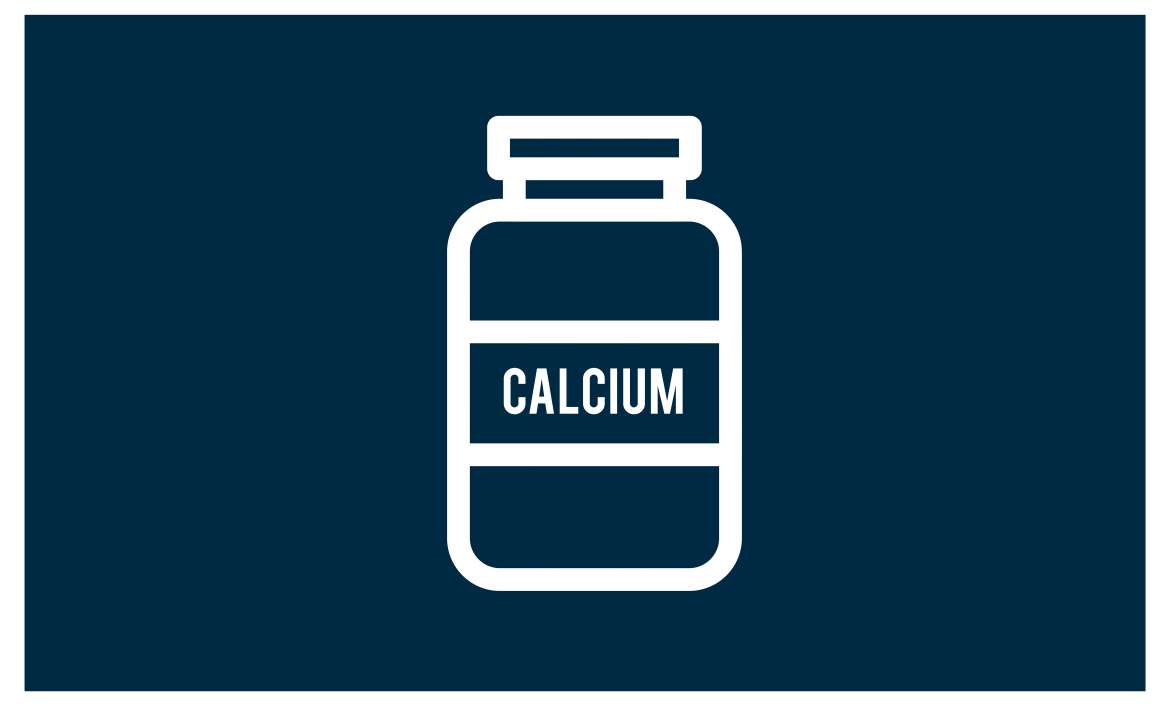Calcium is a macromineral, which we have in our bodies more than any other mineral. It supports muscle function, transmits nerve impulses, helps cells to communicate and is involved in the release of certain hormones.
Most of the calcium is stored in our bones and teeth, where it’s used for structural purposes. We get calcium mostly from Yogurt, whey protein supplements, milk, cottage cheese and dark leafy greens and if you eat those regularly you most likely don’t need to supplement it.
One problem is however that it’s difficult to detect a calcium deficiency because in the short term, our bodies will simply use the calcium stored in our bones to maintain normal blood calcium levels. Over time then your bone density will suffer, though, and you will feel the consequences.
Who should consider calcium supplements?
The result of a prolonged calcium deficiency can be weak and brittle bones as well as osteoporosis.
Women are generally at a higher risk of osteoporosis, especially after reaching menopause, which is why many doctors recommend they supplement with calcium.
Other groups at risk of not getting enough calcium include vegans because they don’t consume dairy products, which are the main source of calcium for most people. Same goes for people who are lactose intolerance.
Those suffering from Crohn’s disease or inflammatory bowel disease should also talk to their doctor because such health condition limit your body’s ability to absorb calcium.
Can calcium supplements become dangerous?
There is research suggesting that calcium supplements may, in fact, cause certain health problems. Unfortunately, the evidence is mixed.
The most controversial findings about calcium supplements is that they could increase the risk of heart attacks and strokes.
The problem is that even though we have various studies on this, they all seem to have come to different conclusions, so the is no general consensus among researchers.
Another possible side effect of high calcium levels might be an increased risk of Prostate Cancer.
In a few studies, most of which were observational, scientists found that higher than normal intakes of calcium were linked to an increased risk of prostate cancer. But again, there are other studies, which showed no such effect or even saw fewer cases of prostate cancer when supplementing calcium.
The bottom line is that we still don’t know exactly what extremely high doses of calcium do to the body. That said, if you are part of the risk groups who might be getting too little calcium, talk to your doctor about potential supplements.
As an example:
The RDI for most adults is 1,000 mg daily and increases to 1,200 mg per day for women over 50 and men over 70. So, if you normally get around 500 mg per day through your diet you can supplement with 500-mg to meet your daily requirement.



